17 Famous Quotes So Iconic We Instantly Recognize the Movie They’re From
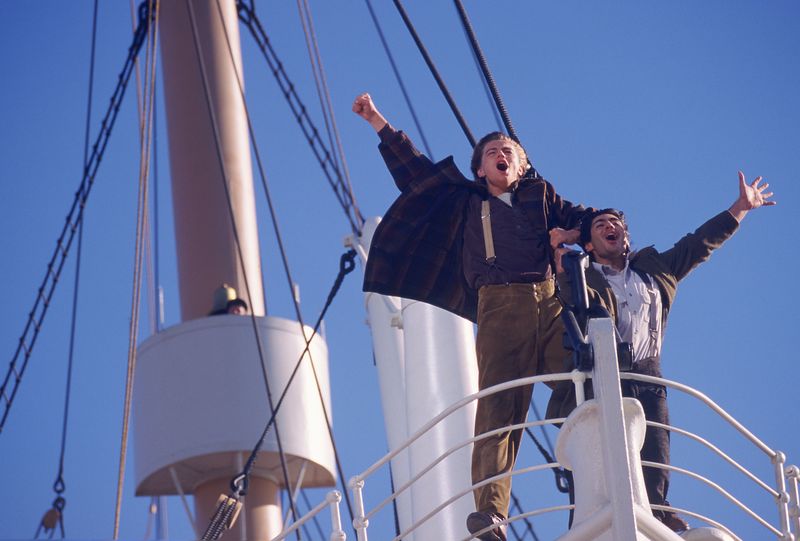
Movies have a magical way of embedding themselves into our cultural memory through unforgettable lines of dialogue. These quotes become more than just words—they transform into cultural touchstones that instantly transport us back to pivotal cinematic moments. Whether dramatic, funny, or profound, these iconic movie quotes have transcended their films to become part of our everyday language.
1. “Frankly, my dear, I don’t give a damn.” – Gone with the Wind
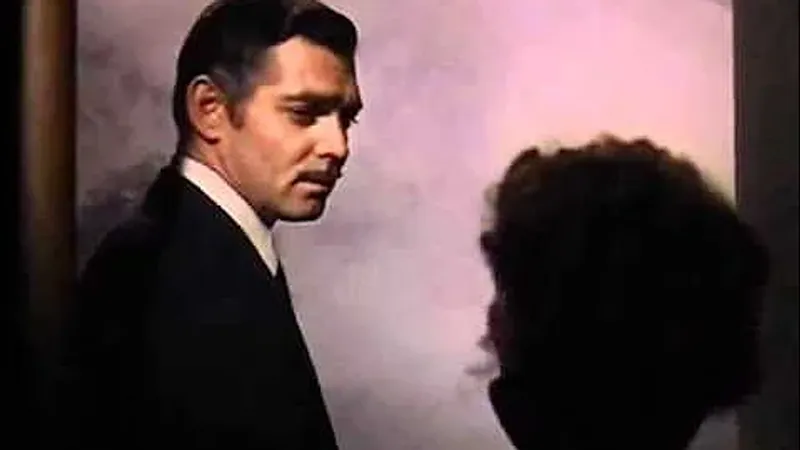
Delivered with perfect coolness by Clark Gable as Rhett Butler in the 1939 epic’s final scene, this line marked one of Hollywood’s first uses of profanity. The quote caps off a turbulent love story with unforgettable finality as Rhett walks away from Scarlett O’Hara.
What makes this line so powerful is its context—after hours of watching Scarlett’s manipulation, audiences feel the satisfaction of her finally facing consequences. The American Film Institute ranked it as the #1 movie quote of all time.
Fun fact: The production had to get special permission to use the word “damn” despite strict censorship codes of the era.
2. “Here’s looking at you, kid.” – Casablanca
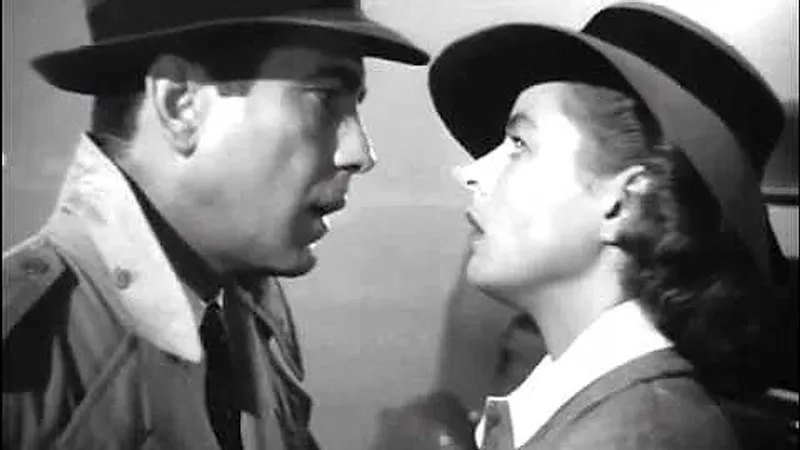
Humphrey Bogart’s Rick Blaine raises his glass with this bittersweet toast to Ingrid Bergman’s Ilsa in 1942’s Casablanca. The phrase wasn’t in the original script—Bogart reportedly used it while teaching Bergman poker between takes.
The line captures the essence of their doomed romance, balancing heartbreak with enduring affection. Rick’s sacrifice becomes all the more poignant through these simple words.
Repeated throughout the film, the quote evolves from a playful phrase to a goodbye laden with unspoken emotion. Its understated elegance perfectly embodies the film’s themes of love and noble sacrifice.
3. “You talking to me?” – Taxi Driver
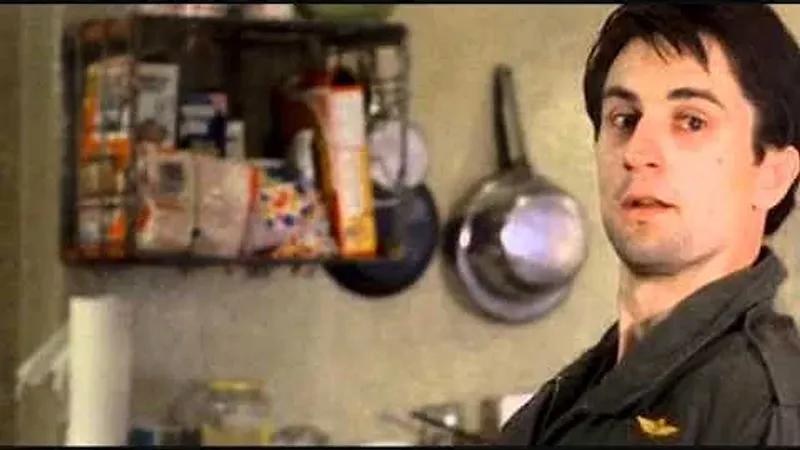
Robert De Niro’s unhinged Travis Bickle practices confrontation in front of his mirror, creating cinema’s definitive portrait of urban alienation. The brilliance? De Niro improvised almost the entire sequence, including this iconic question repeated with escalating intensity.
The scene reveals a disturbed mind preparing for violent conflict, mistaking self-destruction for heroism. Director Martin Scorsese kept the cameras rolling as De Niro built the character’s psychological breakdown in real-time.
The quote has been parodied countless times but never loses its unsettling power. It captures the dangerous isolation of a man disconnected from society, talking to the only person who understands him—his reflection.
4. “I’m the king of the world!” – Titanic
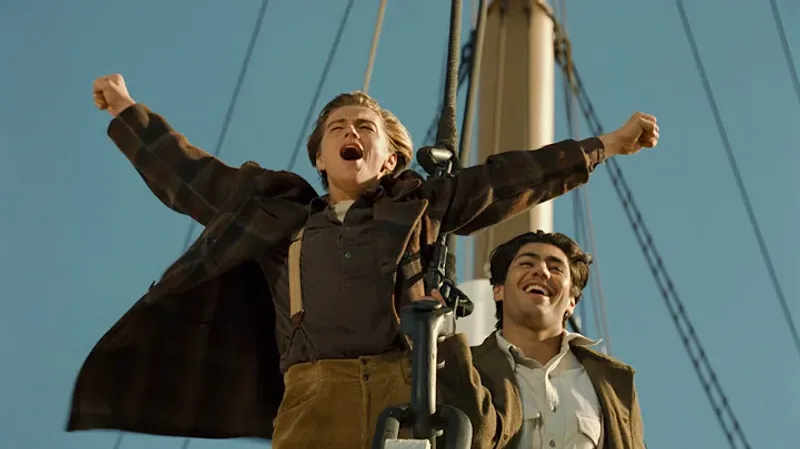
Leonardo DiCaprio’s Jack Dawson stands triumphantly at the ship’s bow, arms outstretched in pure exhilaration. Director James Cameron created this moment of joyful freedom just before tragedy strikes, making it all the more poignant.
The line wasn’t in the original script—DiCaprio improvised it during filming, and Cameron immediately recognized its power. When Cameron himself shouted this line at the 1998 Oscars after winning Best Director, it cemented the quote’s place in pop culture.
The scene’s visual composition became as iconic as the words themselves. Just as unforgettable is Kate Winslet’s Rose softly instructing Jack, “Paint me like one of your French girls.” Together, these two quotes defined the film’s romantic and dramatic legacy. Countless tourists have recreated the ship’s bow pose worldwide, proving how deeply this cinematic moment of passion and joy resonated.
5. “Go ahead, make my day.” – Sudden Impact
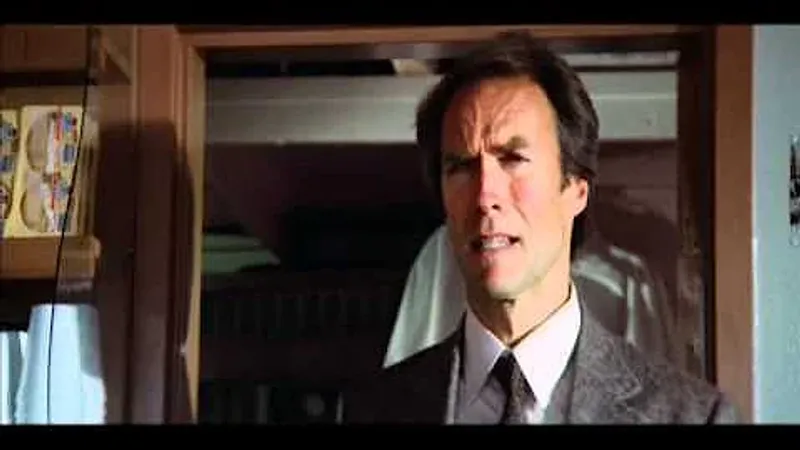
Clint Eastwood’s squinting, gravel-voiced delivery transformed this threat into the ultimate tough-guy challenge. As Detective Harry Callahan, Eastwood calmly invites a criminal to give him an excuse for lethal force while holding a .44 Magnum—”the most powerful handgun in the world.”
The line’s menacing simplicity made it instantly quotable. Even President Ronald Reagan adopted it in 1985, warning congressional Democrats about tax increases.
What many forget is that the quote comes from the fourth Dirty Harry film, not the original. The American Film Institute ranked it #6 on their list of greatest movie quotes, proving Eastwood’s enduring impact on action movie dialogue.
6. “I love the smell of napalm in the morning.” – Apocalypse Now
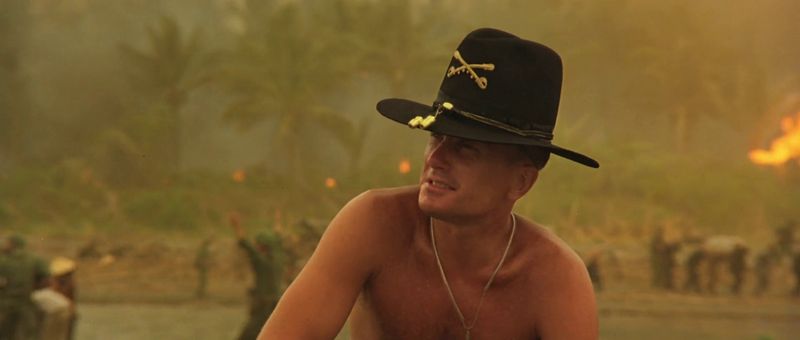
Lieutenant Colonel Kilgore, played with manic intensity by Robert Duvall, casually delivers this chilling line while explosions bloom behind him. The quote perfectly captures the film’s exploration of war’s insanity—finding beauty in destruction represents moral collapse.
Duvall won an Oscar nomination for just 11 minutes of screen time, largely due to this unforgettable scene. The full quote continues with “smells like…victory,” creating a disturbing juxtaposition between sensory pleasure and mass destruction.
Director Francis Ford Coppola uses this moment to illustrate Vietnam’s psychological toll. The line’s matter-of-fact delivery makes it all the more disturbing, showing how normalized violence becomes in wartime.
7. “Show me the money!” – Jerry Maguire
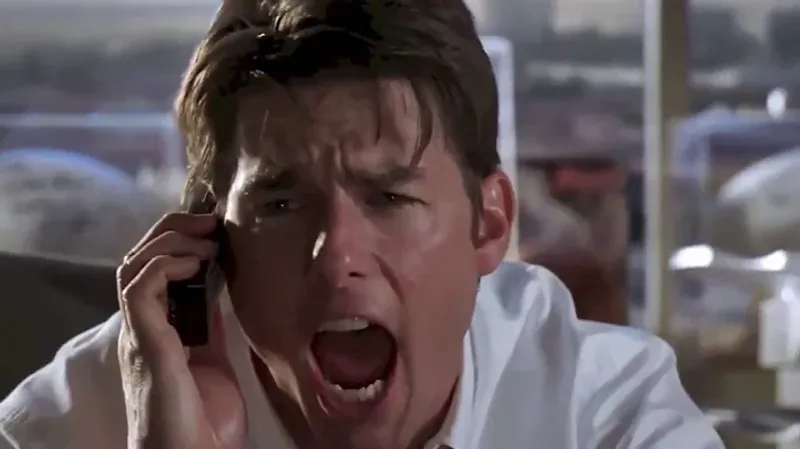
Cuba Gooding Jr.’s football player Rod Tidwell shouts this demand repeatedly during a high-energy phone call, making Tom Cruise’s sports agent Jerry Maguire yell it back with increasing commitment. The scene captures the film’s central tension between personal integrity and commercial success.
Gooding’s performance earned him an Oscar, with this quote becoming his character’s defining moment. The energy builds as both men scream into their phones, creating a perfect comedic crescendo.
The phrase quickly entered everyday language, becoming shorthand for demanding proper compensation. It works because it distills complex negotiations down to their essential truth—in business, passionate words mean nothing without financial backing.
8. “Leave the gun, take the cannoli.” – The Godfather
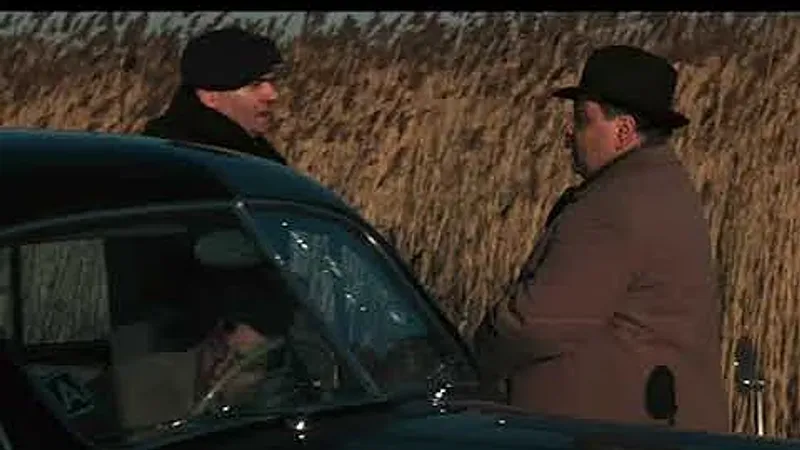
Peter Clemenza’s casual instruction after executing a traitor perfectly captures the Corleone family’s matter-of-fact approach to violence. Actor Richard Castellano improvised the “take the cannoli” part, adding dark humor to a brutal murder scene.
The brilliance lies in its mundane delivery. Murder and dessert share equal importance—business and family intertwine in mob life.
Director Francis Ford Coppola keeps the camera distant during this execution by the roadside, making the violence seem routine. The quote exemplifies why The Godfather revolutionized gangster films—it portrays organized crime as a business where violence is just another transaction, while family obligations (like bringing home pastry promised to your wife) remain sacred.
9. “I’ll have what she’s having.” – When Harry Met Sally
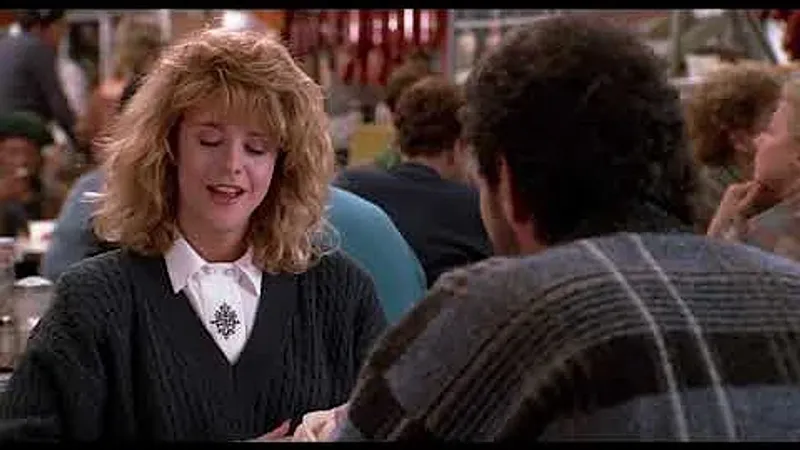
Delivered by director Rob Reiner’s mother Estelle after witnessing Meg Ryan’s character fake an elaborate orgasm in Katz’s Delicatessen, this deadpan quip provides the perfect punchline. The scene brilliantly explores the differences between men and women through comedy.
Billy Crystal’s stunned reaction contrasts with Ryan’s return to casual dining, creating a masterclass in comedic timing. The deli setting makes the intimate display even more shocking and hilarious.
The line works because it acknowledges the audience’s thoughts while breaking tension. Tourists still visit the actual New York deli where it was filmed, sitting at the table marked with a sign saying “Where Harry met Sally…hope you have what she had!”
10. “Life is like a box of chocolates…” – Forrest Gump
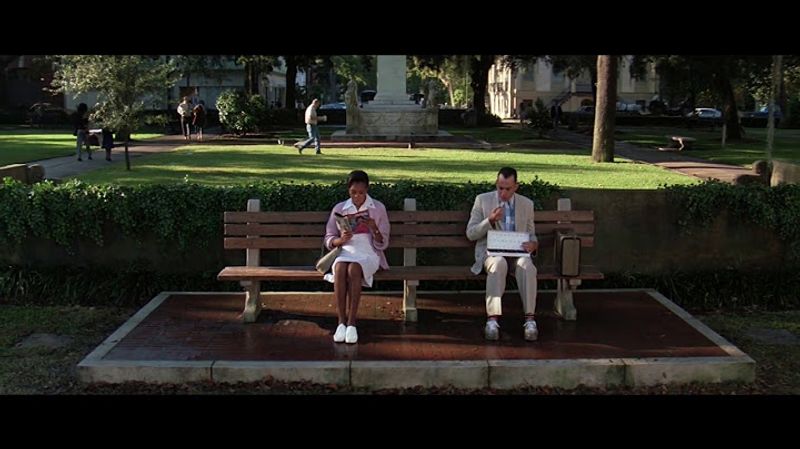
Tom Hanks delivers this folksy wisdom as Forrest Gump while sitting on a bus stop bench, creating an instantly recognizable metaphor for life’s unpredictability. The full quote—”You never know what you’re gonna get”—perfectly captures the film’s exploration of chance and destiny.
Hanks’ Southern accent and innocent delivery make the philosophy seem profound rather than simplistic. The metaphor works because it’s accessible—everyone understands the surprise element of assorted chocolates.
What many don’t realize is that in Winston Groom’s original novel, the line was actually “Life is like a box of chocolates: a few short dark ones, some nut-filled ones, and a couple of cream-filled ones which get eaten very quickly.” The film’s streamlined version proved much more memorable.
11. “I see dead people.” – The Sixth Sense
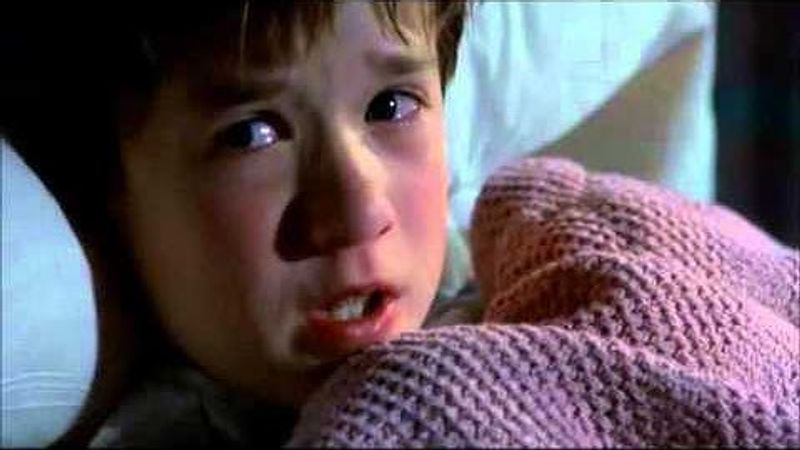
Haley Joel Osment’s haunted whisper to Bruce Willis created one of cinema’s most chilling revelations. Director M. Night Shyamalan crafted this line as both a plot device and brilliant misdirection for the film’s famous twist.
The quote works on multiple levels—initially as a child’s terrifying confession, then recontextualized when we learn Willis’s character is himself deceased. Osment’s delivery, with wide-eyed innocence masking deep trauma, earned him an Oscar nomination at just 11 years old.
The phrase quickly entered popular culture as shorthand for any unexpected revelation. Even those who haven’t seen the film recognize the quote, though many mistakenly remember it as “I can see dead people”—a testament to how cultural memory sometimes reshapes iconic lines.
12. “Houston, we have a problem.” – Apollo 13
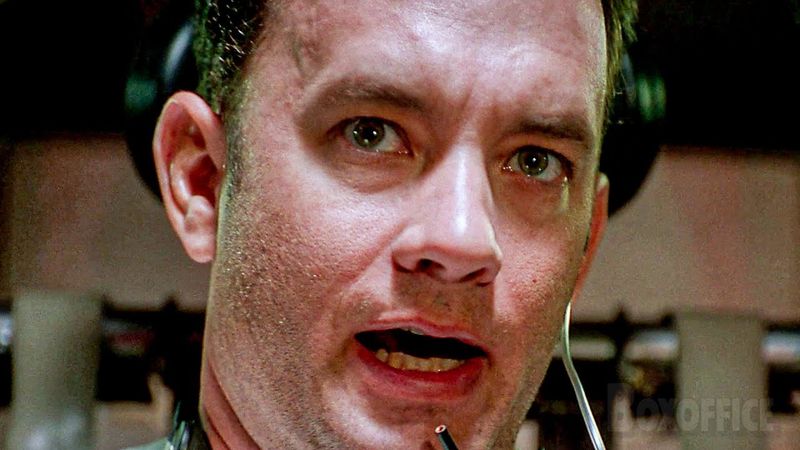
Tom Hanks as astronaut Jim Lovell delivers this understated alert after an oxygen tank explodes on their spacecraft. The real-life Lovell actually said “Houston, we’ve had a problem,” but director Ron Howard changed it to present tense for dramatic effect.
The line’s power comes from its calm delivery during catastrophe. These astronauts, facing possible death, respond with professional restraint rather than panic.
The phrase has become universal shorthand for any unexpected crisis, used everywhere from business meetings to kitchens when dinner goes wrong. It perfectly captures the American ideal of grace under pressure—acknowledging serious trouble while maintaining composure to solve it methodically.
13. “There’s no crying in baseball!” – A League of Their Own
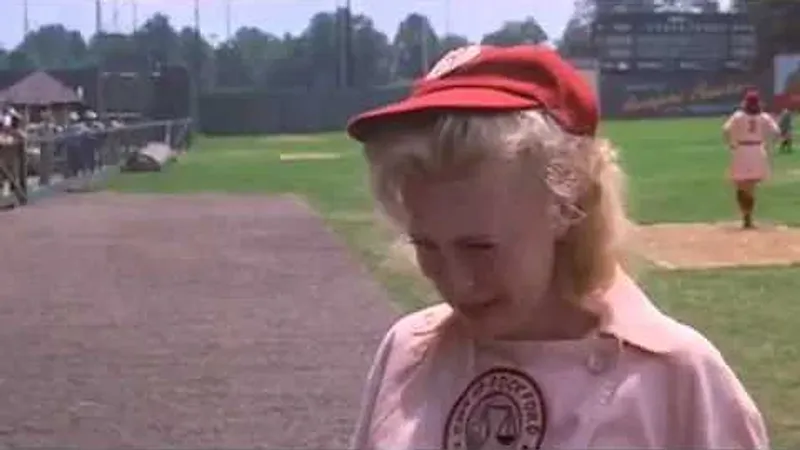
Tom Hanks as gruff manager Jimmy Dugan erupts with this exasperated declaration when one of his female players tears up after his harsh criticism. The line perfectly captures the film’s exploration of gender roles in 1940s professional sports.
Director Penny Marshall frames this moment as both comedic and revealing—Dugan must adjust his coaching style for the women’s league while the players prove their toughness. The repetition of “There’s no crying in baseball!” builds the comedic momentum.
Beyond the film, the quote became a cultural shorthand for outdated gender expectations. Sports commentators still reference it during emotional moments in games, showing how thoroughly this line infiltrated American sports culture.
14. “We’re gonna need a bigger boat.” – Jaws
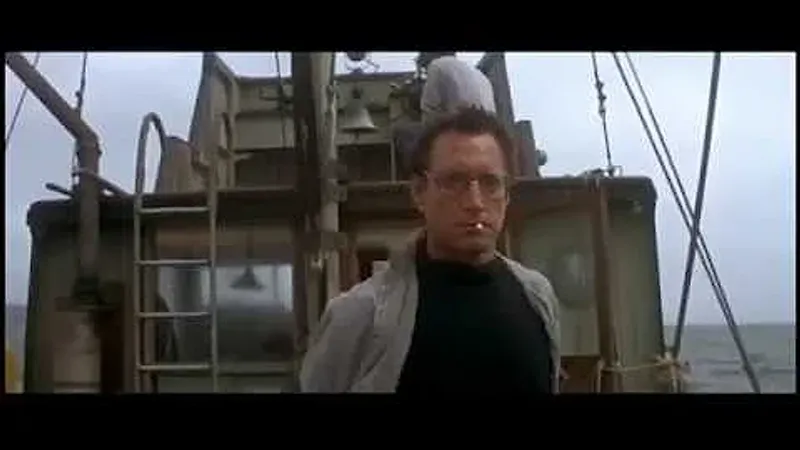
Roy Scheider’s Chief Brody delivers this understatement after his first terrifying glimpse of the massive shark. The line wasn’t in the screenplay—Scheider improvised it from a phrase the production crew used when facing logistical problems.
Its power comes from perfect timing and delivery—after two hours of building tension, we finally see the threat while Brody mechanically scoops chum into the water. His deadpan reaction highlights the shocking size disparity between hunter and hunted.
Steven Spielberg’s decision to keep the shark mostly hidden makes this moment pivotal. The line works because it acknowledges the audience’s own realization about the impossible odds facing our heroes on their clearly inadequate vessel.
15. “Luke, I am your father.” – The Empire Strikes Back
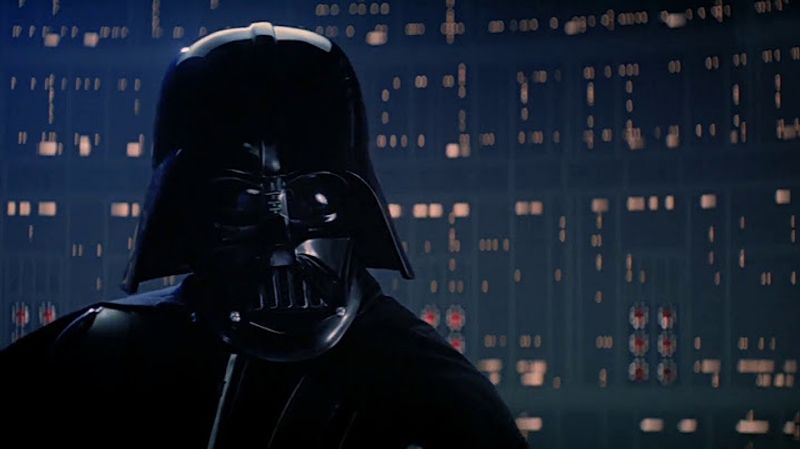
Darth Vader’s shocking revelation during his lightsaber duel with Luke Skywalker created cinema’s greatest paternity twist. Interestingly, the actual line is “No, I am your father”—the misquote became more famous than the original dialogue.
Voice actor James Earl Jones initially thought the line was a deception, not a genuine plot point. The scene works because it transforms the Star Wars saga from a simple good-versus-evil tale into a complex family drama spanning generations.
Director Irvin Kershner kept this twist so secret that even actor Mark Hamill only learned the truth moments before filming. The crew filmed a fake revelation where Vader claimed Obi-Wan killed Luke’s father to prevent leaks—creating one of the best-kept secrets in film history.
16. “May the Force be with you.” – Star Wars
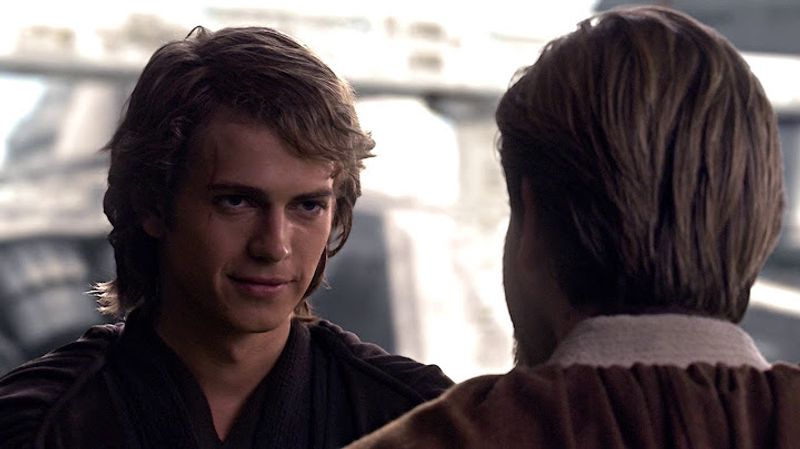
This blessing-like phrase unites the entire Star Wars universe, first spoken by General Dodonna before the Death Star attack. Creator George Lucas designed it as a spiritual mantra, giving his space fantasy a quasi-religious dimension that elevated it beyond typical sci-fi.
The line’s power comes from its versatility—it works as greeting, farewell, encouragement, and prayer. Its rhythm echoes religious benedictions, creating familiar spiritual resonance in an alien universe.
The phrase transcended film to enter everyday speech, especially on May 4th (“May the Fourth be with you”). Even non-fans recognize it, demonstrating how completely Star Wars terminology has infiltrated global culture. Lucas created not just a film but an entire linguistic framework that continues expanding with each new Star Wars story.
17. “Nobody puts Baby in a corner.” – Dirty Dancing
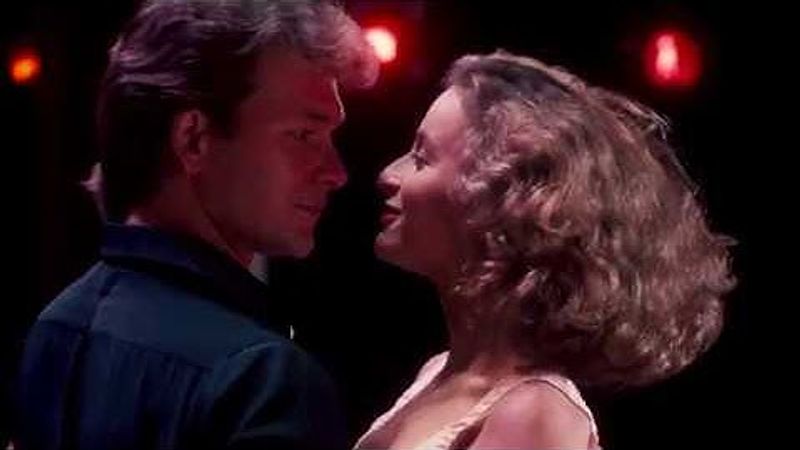
Patrick Swayze’s dance instructor Johnny Castle delivers this defiant declaration before pulling Jennifer Grey’s Frances “Baby” Houseman from her family table for their final dance. The line represents perfect character culmination—Johnny finally standing up to class prejudice while Baby embraces her full potential.
Swayze reportedly hated this dialogue, feeling it was too cheesy. Yet its straightforward sentiment perfectly captures the film’s themes of breaking free from limitations imposed by others.
The quote works because it’s simultaneously literal (Baby is sitting in a corner) and metaphorical (about refusing to be marginalized). Its simplicity makes it universally applicable to any situation where someone feels sidelined, helping this modest film become a cultural phenomenon that still resonates decades later.

Comments
Loading…